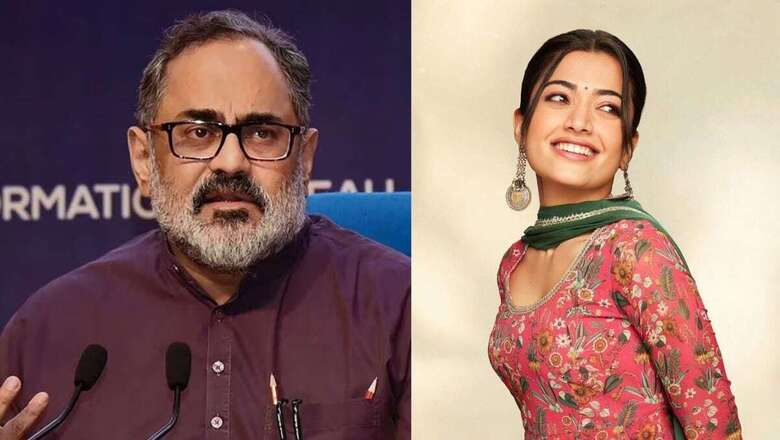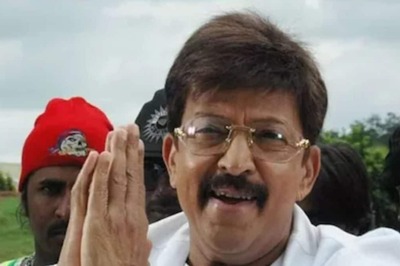
views
Rajeev Chandrasekhar, the Minister of State for Electronics and Information Technology of India, has called out social media platforms for their inability to handle content containing deep fakes and misinformation after the latest deepfake video of Rashmika Mandanna went viral. In doing so, he emphasizes the importance of internet-based platforms to adhere to the IT rules notified in April 2023.
Also Read: Amitabh Bachchan Demands ‘Legal’ Action After Rashmika Mandanna’s Morphed Video Goes Viral
He reminds platforms that, according to these rules, they must “ensure no misinformation is posted by any user,” and also must “ensure that when reported by any user or govt, misinformation is removed in 36 hrs.” If any platform fails to comply with these mandates, “rule 7 will apply and platforms can be taken to court by aggrieved person under provisions of IPC.”
PM @narendramodi ji’s Govt is committed to ensuring Safety and Trust of all DigitalNagriks using InternetUnder the IT rules notified in April, 2023 – it is a legal obligation for platforms to
➡️ensure no misinformation is posted by any user AND
➡️ensure that when reported by… https://t.co/IlLlKEOjtd
— Rajeev Chandrasekhar (@Rajeev_GoI) November 6, 2023
This follows the rise of deep fake photos and videos on social media platforms, and more recently brought to light by a recent fake viral video featuring actress Rashmika Mandanna. In this video, the actress’s face has been superimposed onto that of Zara Patel, a woman of British-Indian origin with a big following on Instagram.
“Deep fakes are latest and even more dangerous and damaging form of misinformation and needs to be dealt with by platforms,” Rajeev Chandrasekhar further added, quoting the viral post by X (formerly Twitter) user Abishek, who also happens to be a journalist with AltNews. The post includes a comparison between Zara Patel’s original video on Instagram and the digitally altered fake video featuring actress Rashmika Mandanna’s face.
What Are Deepfake Videos?
In today’s digital landscape, advancements in artificial intelligence and computer software enable users to manipulate existing videos by morphing different faces, often sparking controversy. These manipulated videos alter individuals’ appearances to resemble others, leading to controversies, spread of misinformation, or reputational harm. Coupled with easy access to the internet and social media platforms, these deepfakes spread rapidly online.
Moreover, as technology becomes increasingly advanced, identifying deep fakes is becoming more challenging.
Even politicians are not safe from this. In fact, there have been instances of videos featuring PM Narendra Modi on Instagram Reels, edited to feature alongside Italian PM Giorgia Meloni. These were shared as memes for entertainment. However, in the long term, this poses a significant challenge for social media platforms as these videos go against the new IT rules introduced in 2023, prohibiting their legal posting on any platform in India.

















Comments
0 comment